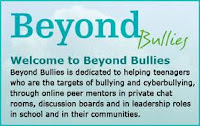Parents of at-risk teens have many common thoughts, here are some of them:
My daughter is so smart, she is highly intelligent.
My son is extremely handsome, very athletic and always had lots of friends.
My daughter is beautiful, was the captain of her cheerleading team etc….
My son has an IQ of 170, yet is failing.
My daughter wants to drop out of high school.
My son wants to get his GED and is not attending school.
My daughter made the varsity team and yet dropped out.
My son was swim captain and now was asked to leave the team. (He was caught with pot, but said it was his friends.
My daughter smokes pot, but it is only recreational.
My son likes to drink beer, but it isn’t all the time.
Excuses for parents:
It is the friends he/she is hanging with.
The teacher doesn’t like my son/daughter.
The school has zero tolerance.
His father isn’t around enough.
The coach expects too much.
If it wasn’t for this one neighbor, we wouldn’t have these issues.
Okay, these lists could go on for a long time but at the end of the day, week, month, year – it is
YOUR son/daughter
making the choice to hang with a certain friend, be a part of an undesirable peer group, and smoke that joint with a swig of alcohol!
Parents that continue to live in this ship of
denial will end up with many regrets.
Parent that believe that sending their teen to a residential therapy program for help is a sign of their (the parent’s) failure, are very much mistaken.
Parents that hope and pray things will change – we only wish them the best, in some (very rare) situations, it will get better.
Parents that believe changing schools will make a difference, think twice.
Parents that literally move and believe things will change with a fresh start, think again.
Like adults that attempt to run from their problems, your teens are no different. If they are struggling now, chances are very good they will be struggling shortly after the change again.
You are not a failure, this is not your fault – and it is time to
stop the blaming and start the healing. After exhausting all your local resources – it may be time to find outside help, and that can mean residential.
True, you don’t want to put your teen in a program that houses hard-core teens, but it is also true you need to find a program that has strong
emotional growth (clinical),
fully accredited academically (don’t miss out on an education), as well as the critical component of
enrichment programs. You need to find the passion in your teen to
help stimulate them to a positive direction in life.
Learn more by visiting
www.helpyourteens.com.
Residential Treatment Centers (RTC), Therapeutic Boarding Schools (TBS), Emotional Growth Programs, Wilderness Programs, State Funded Programs, Programs for Low-Income, Boot Camps, Scared Straight Programs, Tough Love, Summer Camps, Short Term Programs, Traditional Boarding Schools, Military Schools, Reform Schools, JAIL.





